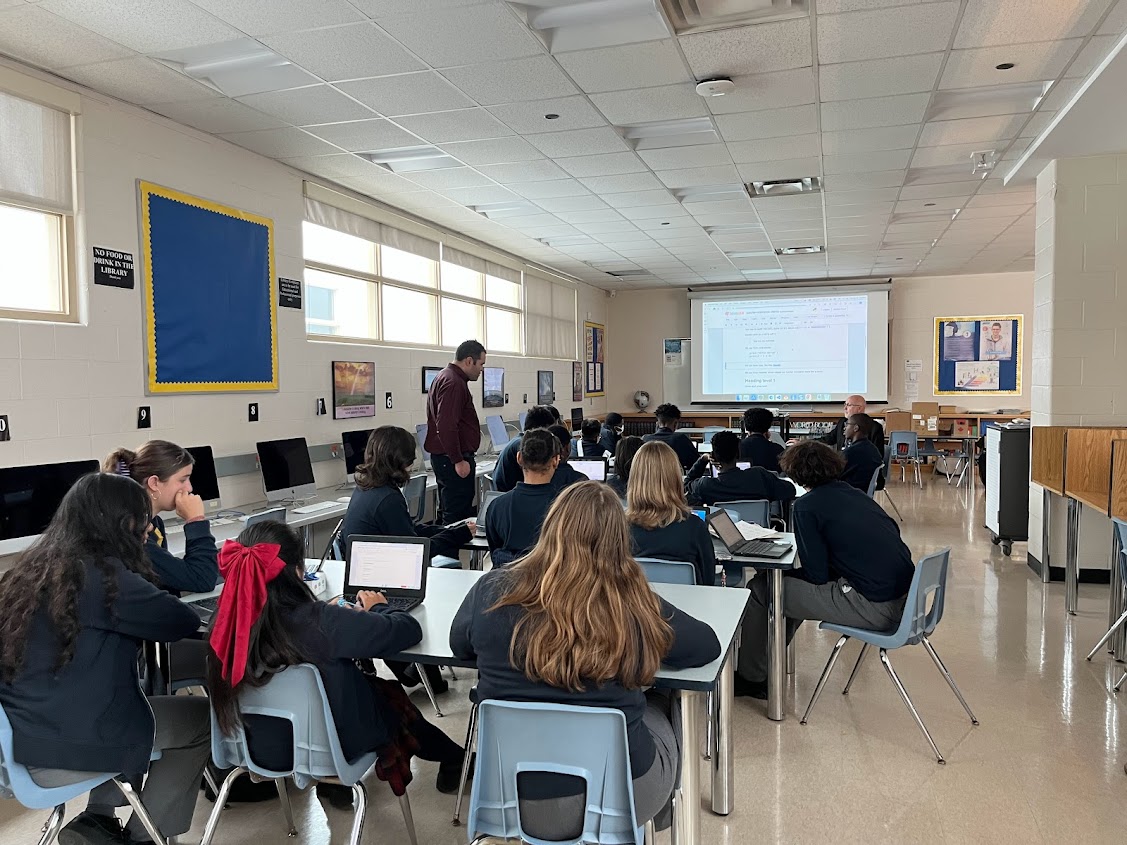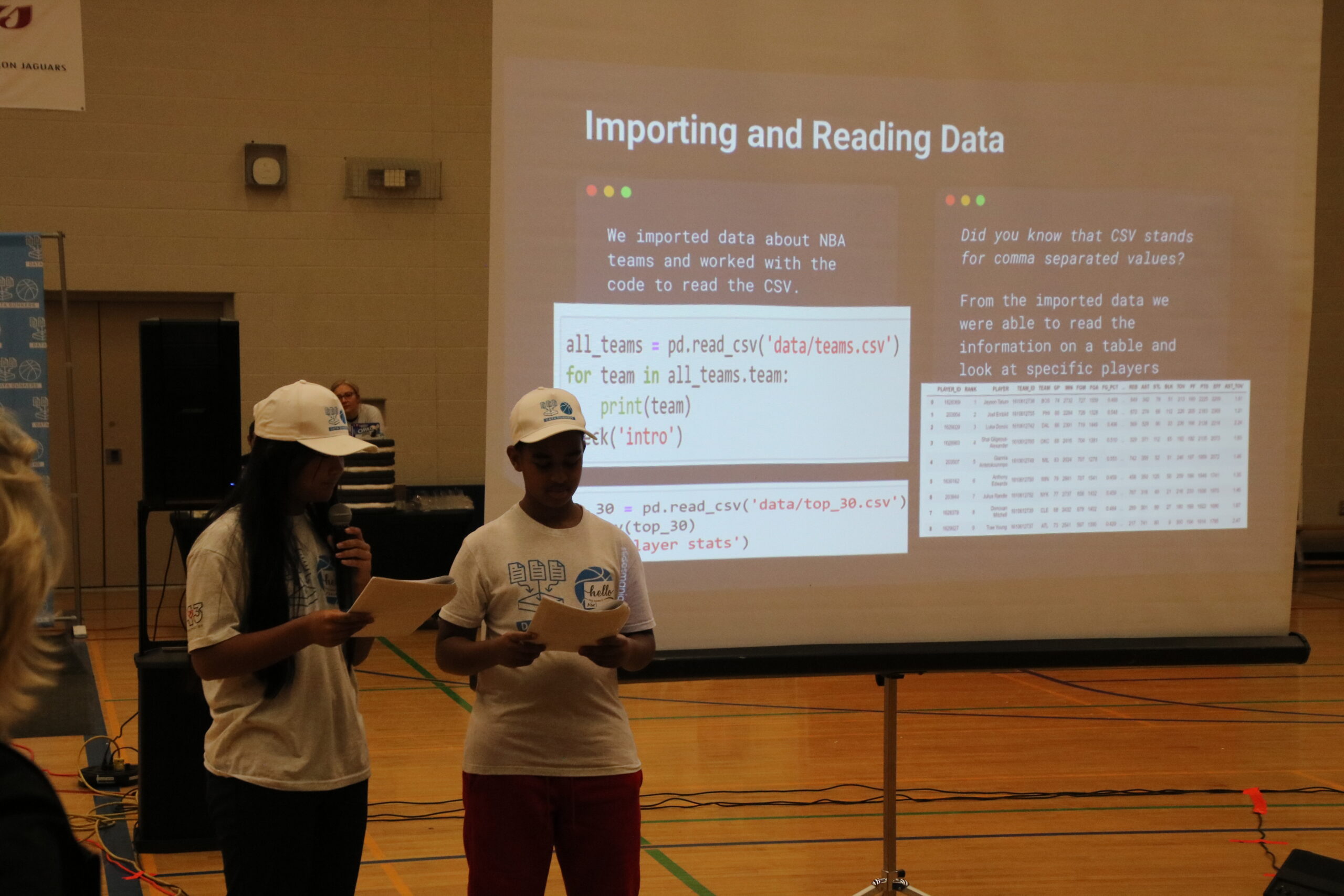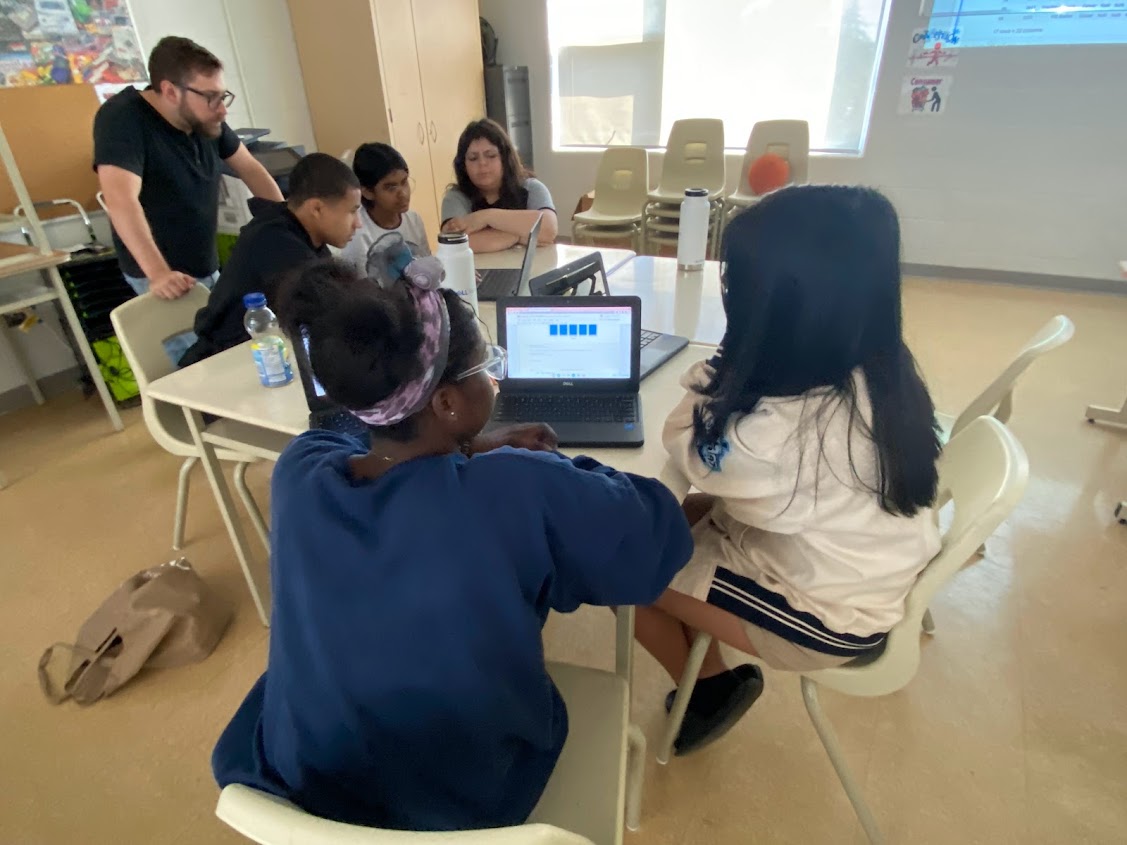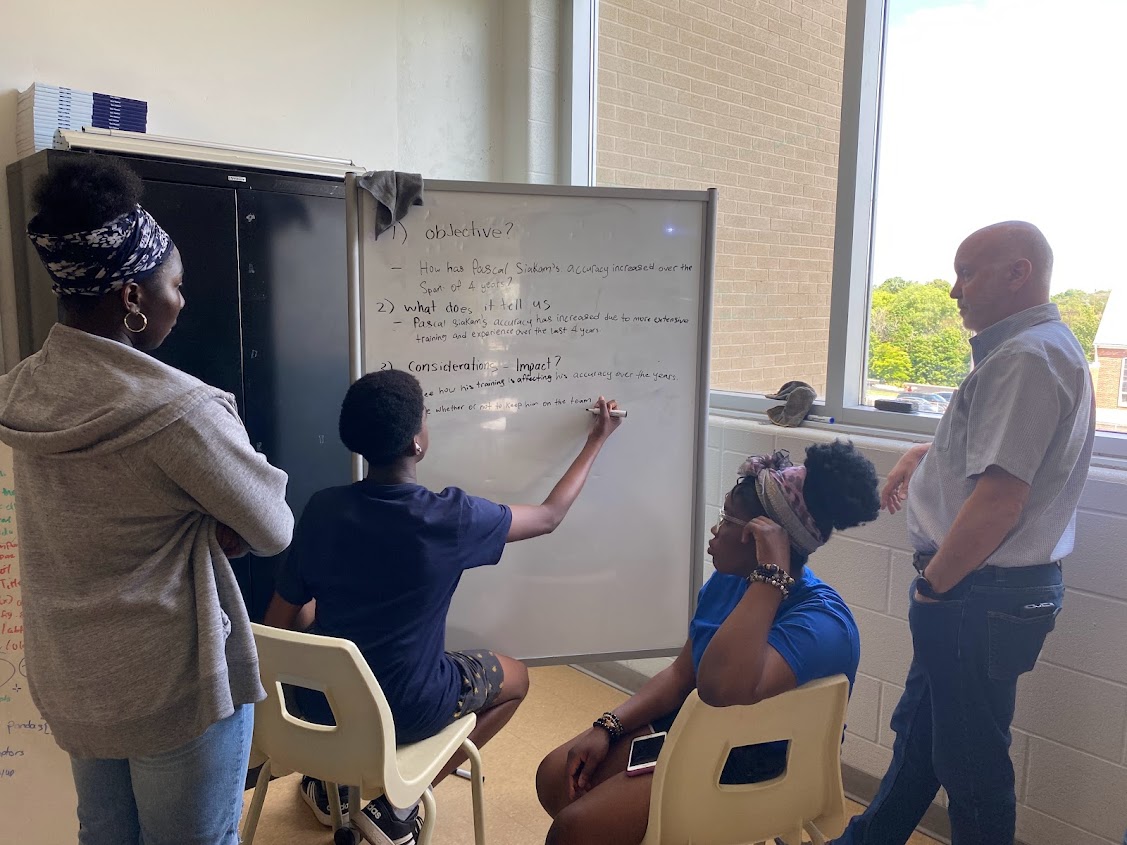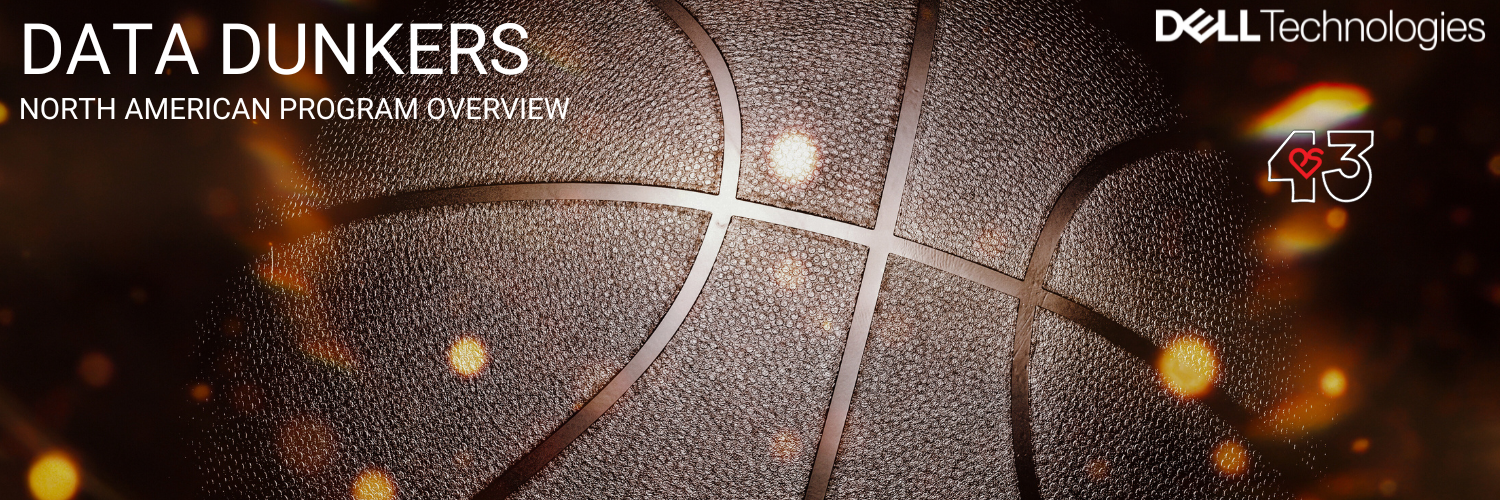Instructional Approach
The Data Dunkers program employs a hands-on, project-based learning approach to engage students in data science through the lens of basketball sports analytics. This approach is characterized by several key strategies:
-
Engagement through Physical Activity: To keep students engaged, the program intersperses short lesson segments with basketball games. This strategy not only breaks up the monotony of classroom learning but also helps to reinforce the connection between the physical sport and its analytical aspects.
-
Project-Based Learning: Students work on individual or small group data science projects, applying what they've learned to real-world basketball data. This allows them to explore their interests, develop critical thinking, and apply problem-solving skills in a practical context.
-
Focus on Application of Tools and Skills: The curriculum introduces students to Python, Jupyter Notebooks, and libraries like pandas and Plotly, equipping them with modern data science tools and skills. This includes both coding and analytical techniques, as well as the ability to interpret and tell stories with data.
-
Adaptation to Student Needs: Recognizing varying levels of prior knowledge and interest, the program is designed to be accessible to beginners while still offering depth for more experienced students. This adaptability helps to ensure that all participants can find value and growth in the experience.
Learning Activity Components
The learning modules of the Data Dunkers program are structured around a blend of technical instruction, hands-on application, and physical activity. This design aims to not only practice data science skills but also to foster a holistic understanding of how these skills can be applied to real-world scenarios, particularly in the context of sports analytics. The inclusion of physical activity and project-based approaches helps to make the program engaging and relevant to students' interests, potentially inspiring a lifelong interest in both data science and sports.
Key components include:
-
Foundational Concepts: Introduction to Python programming, focusing on basic syntax and essential libraries for data analysis, such as pandas and Plotly.
-
Data Analysis Projects: Students undertake projects that involve analyzing open data from the NBA and WNBA, allowing them to apply coding and analytical skills to real datasets.
-
Integration of Design Thinking: Lessons include elements of design thinking to encourage creativity in how data is presented and stories are told through graphs and analyses.
-
Physical Activities: Basketball games and exercises are integrated into the curriculum to reinforce the connection between the data analysis work and the physical sport, enhancing engagement and understanding.
-
Individual Projects: A significant portion of the curriculum is dedicated to individual or group projects where students explore specific questions of interest, such as analyzing the performance trends of professional players like Pascal Siakam.
Data Science Competencies
| Competency |
Core Concepts |
Skills |
| Foundational Data Literacy |
Understanding what data is, types of data, and the importance of data in decision-making. |
Identifying data collection methods and performing simple data collection and entry. |
| Computational Thinking and Programming Basics |
Basic principles of computational thinking, including decomposition, pattern recognition, abstraction, and algorithm design. |
Introduction to programming for data manipulation and simple analyses. |
| Statistical Reasoning |
Basic statistical concepts and introduction to probability and inferential statistics. |
Using software tools to compute statistical measures and visualize data distributions. |
| Critical Data Analysis |
How to evaluate data sources for reliability and bias, assessing data completeness and accuracy. |
Identifying trends and patterns, recognizing potential biases or errors. |
| Data Visualization and Communication |
Principles of effective data visualization and the role of storytelling in data science. |
Creating clear, informative visualizations; communicating findings through storytelling. |
| Ethical Considerations in Data Science |
Key ethical considerations in data collection, analysis, and use, including privacy concerns. |
Applying ethical considerations to data projects, including consent and anonymizing data. |
| Application of Data Science to Real-World Problems |
How data science is applied across various industries to solve problems and make decisions. |
Engaging in project-based learning to address real-world questions. |
| Critical Thinking Skills |
Understanding critical thinking essentials for data science: selecting vital metrics, assessing dataset integrity, discerning trends and underlying causes, identifying biases or inaccuracies, and deriving actionable insights. |
Applying critical thinking through project work, including defining metrics and evaluating data. |
Key Components
| Learn Data Science through basketball |
Leverage basketball statistics from both the NBA and the WNBA, with an emphasis on those of Pascal Siakam
Build student understanding of data science through Python and Jupyter Notebooks |
| Differentiated Learning |
All students are provided with the opportunity to be successful with coding and Jupyter Notebooks regardless of level of readiness
Learn essential concepts and apply them to real-world scenarios |
| Design Thinking Process |
Engage in the design thinking process (empathize, ideate, prototype, and test)
Promote global competencies (communication, collaboration, creativity, critical thinking, and problem solving) |
Inquiry
(Personal Projects) |
Explore data sets through basketball or other domains of interest
Encourage student voice and choice to build both digital and data science skills
Amplify creativity and personalization |
| Career Opportunities |
Seek new opportunities in the field
Discover and explore career pathways and opportunities in data science |
|
